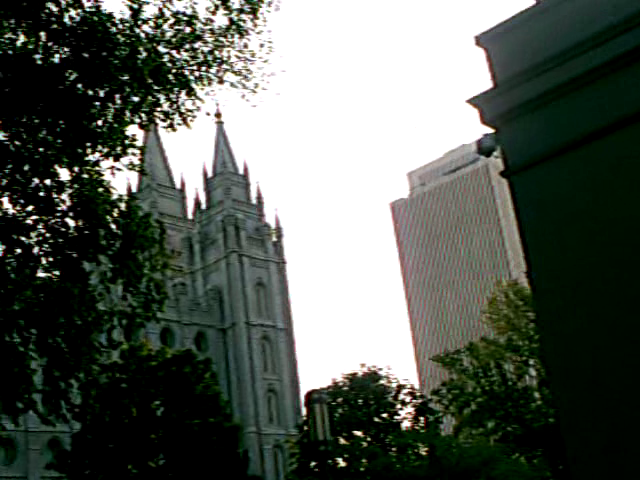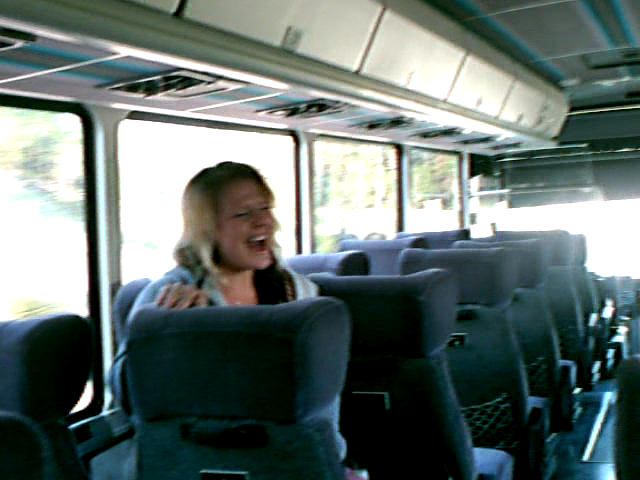‘The soul of the city’: can Kinshasa’s last remaining baobab tree be saved?
-
Across Africa, baobabs have rich symbolic meaning, but the breakneck
expansion of the DRC’s capital has reduced their number in the city centre
to one
T...
39 minutes ago





















+NEW+YORK+hot+movie+008.jpg)
+LasVegas+gals+vlcsnap-16038.png)





A UNIQUE Performance in DEED ! Francis, however, is the church's chief lawmaker, so in theory he can do whatever he wants.
ReplyDelete"The pope does not need anybody's permission to make exceptions to how ecclesiastical law relates to him," noted conservative columnist Jimmy Akin in the National Catholic Register. But Akin echoed concerns raised by canon lawyer Edward Peters, an adviser to the Vatican's high court, that Francis was setting a "questionable example" by simply ignoring the church's own rules.
"People naturally imitate their leader. That's the whole point behind Jesus washing the disciples' feet. He was explicitly and intentionally setting an example for them," he said. "Pope Francis knows that he is setting an example."
INCLUSION OF WOMEN
The inclusion of women in the rite is problematic for some because it could be seen as an opening of sorts to women's ordination. The Catholic Church restricts the priesthood to men, arguing that Jesus and his 12 apostles were male.
Francis is clearly opposed to women's ordination. But by washing the feet of women, he jolted traditionalists who for years have been unbending in insisting that the ritual is for men only and proudly holding up as evidence documentation from the Vatican's liturgy office saying so.
"If someone is washing the feet of any females ... he is in violation of the Holy Thursday rubrics," Peters wrote in a 2006 article that he reposted earlier this month on his blog.
In the face of the pope doing that very thing, Peters — like many conservative and traditionalist commentators — have found themselves trying to put the best face on a situation they don't like lest they be openly voicing dissent with the pope.
By Thursday evening, Peters was saying that Francis had merely "disregarded" the law — not violated it.
The Rev. John Zuhlsdorf, a traditionalist blogger who has never shied from picking fights with priests, bishops or cardinals when it concerns liturgical abuses, had to measure his comments when the purported abuser was the pope himself.
"Before liberals and traditionalists both have a spittle-flecked nutty, each for their own reasons, try to figure out what he is trying to do," Zuhlsdorf wrote.
But, in characteristic form, he added: "What liberals forget in their present crowing is that even as Francis makes himself — and the church — more popular by projecting (a) compassionate image, he will simultaneously make it harder for them to criticize him when he reaffirms the doctrinal points they want him to overturn."
LATIN MASS
One of the key barometers of how traditionalists view Francis concerns his take on the pre-Vatican II Latin Mass. The Second Vatican Council, the 1962-65 meetings that brought the church into the modern world, allowed the celebration of the Mass in the vernacular rather than Latin. In the decades that followed, the so-called Tridentine Rite fell out of use almost entirely.
Traditionalist Catholics who were attached to the old rite blame many of the ills afflicting the Catholic Church today — a drop in priestly vocations, empty pews in Europe and beyond — on the liturgical abuses that they say have proliferated with the celebration of the new form of Mass.
In a bid to reach out to them, Benedict in 2007 relaxed restrictions on celebrating the old Latin Mass. The move was aimed also at reconciling with a group of schismatic traditionalists, the Society of St. Pius X, who split from Rome precisely over the Vatican II reforms, in particular its call for Mass in the vernacular and outreach to other religions, especially Judaism and Islam.
Benedict took extraordinary measures to bring the society back under Rome's wing during his pontificate, but negotiations stalled.
....